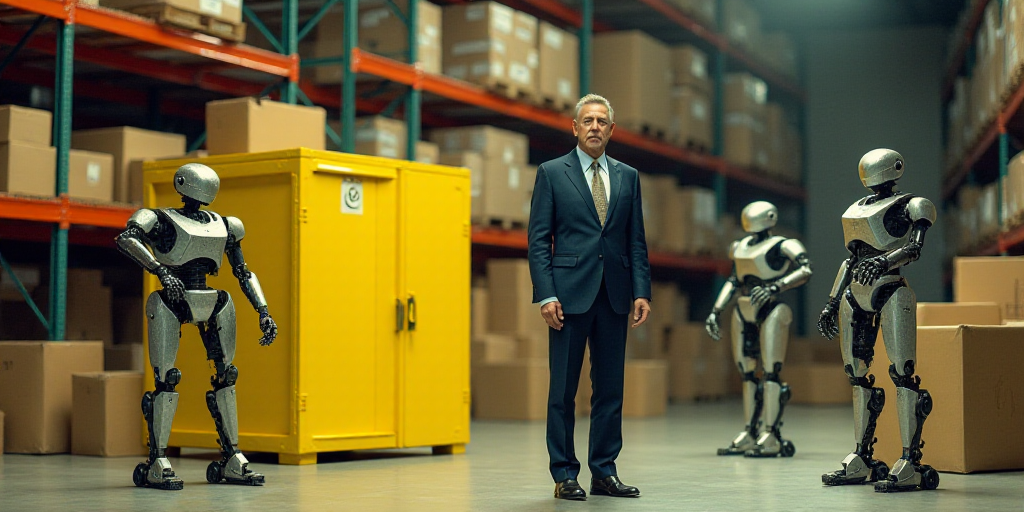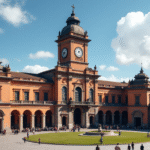Background on Kärcher Mexico
Kärcher, a German manufacturer of autonomous cleaning machines and equipment, has expressed confidence in its continued growth in Mexico despite current economic challenges. With 35 years of operations in the country and a plant in Guadalupe celebrating its 20th anniversary, the company believes in its adaptability to any scenario, according to Francisco Márquez, the company’s general director.
Overcoming Current Challenges
Márquez stated, “We view this situation more as an opportunity due to the infrastructure and capabilities that Kärcher has in Mexico. We’ve been here for 35 years, our Guadalupe plant recently celebrated its 20th anniversary, and we have all the operational, commercial, and market recognition capabilities. This adaptability has allowed us to remain here and continue to do so regardless of any circumstances.”
Luis Pablo Zapata, operations director at Kärcher Monterrey, added, “The tariff impact on the factory has not been strong so far because we are within the T-MEC, and our products fully qualify under this policy. We haven’t been affected yet, but we don’t know what tomorrow will bring. However, whatever comes our way, we will face and resolve it. There are legal techniques we can utilize to continue growing.”
Raw Materials and Their Impact
Although steel is a primary input for manufacturing autonomous cleaning machines and other industrial cleaning products, Kärcher is not affected as they use locally sourced steel. However, Zapata mentioned that a recent U.S. clause on copper did impact them, though finished products ensure compliance with origin rules through added value and the “Made in Mexico” label.
Medium- and Long-Term Plans
Regarding expansion, Luis Pablo Zapata explained that they have a master factory plan for future development over periods of 5 years or more. They have the space and technology to achieve this, having prepared in advance. “Yes, we have that plan; we’re waiting for certain commercial and economic conditions to materialize regarding tariffs in the United States. 85% of this plant’s production is for the United States, while 15% stays in Mexico, operating under a maquiladora concept with much of it being exports.”
Transition to Autonomous Equipment
Francisco Márquez highlighted that the Guadalupe plant plays a strategic role not only for the national market but also for North America, as it primarily manufactures industrial and professional cleaning equipment with wide acceptance in sectors like manufacturing, retail, hospitality, contract cleaning, and automotive.
He explained that Kärcher is transitioning technologically towards autonomous equipment with artificial intelligence and the Internet of Things, driven by the need for increased efficiency. Although robotics development remains centralized in Germany, local Mexican engineering contributes with proposals and adaptations to meet market needs.
The Guadalupe plant employs 320 people, including specialized technicians and engineering design. They have experienced a 10% annual growth in sales over the past decade. The new Kärcher Intelligence Robotics Application (KIRA) division focuses on professional cleaning with an intelligent, autonomous, and connected approach.
During the plant tour, they showcased the Kira B 50 model, an autonomous machine with a 6- to 7-hour battery life, multisensor system for obstacle detection, and a speed of 6 kilometers per hour. This model has already been commercialized in Querétaro, with the Kira 150 and 200 models (for 150 and 200 liters) soon to be released.
Key Questions and Answers
- Q: How is Kärcher addressing current economic challenges? A: Kärcher views these challenges as opportunities due to their established infrastructure and capabilities in Mexico, emphasizing adaptability to any scenario.
- Q: What impact do tariffs have on Kärcher’s operations? A: Tariffs have not significantly affected Kärcher so far, as they qualify fully under the T-MEC policy. They are prepared to face any future tariff changes through legal techniques.
- Q: How is Kärcher transitioning to autonomous cleaning equipment? A: Kärcher is transitioning towards autonomous equipment with AI and IoT, leveraging local Mexican engineering for market-specific adaptations.
- Q: What are Kärcher’s medium- and long-term plans? A: Kärcher has a master factory plan for future development, focusing on expanding production for the United States while maintaining a presence in Mexico.






